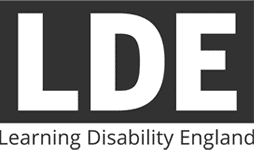Jayne Leeson, MBE – CEO Changing Our Lives
I’ve been a lifelong lover of literature, and I’ve started exploring a lot of dystopian fiction during lockdown. Reading this fiction of an evening and then working to uphold the rights of people with learning disabilities and autistic people during the day, it’s felt as if my two worlds, of the imagined and the real, are colliding.
If you’ve ever read dystopian fiction such as George Orwell’s 1984 or Ray Bradbury’s Fahrenheit 451, you’ll know that in the dystopian novel citizens are controlled and dehumanised, freedom of thought and individuality are quashed, the natural world is banished, individuals are under constant surveillance and control, and information is restricted. This is undeniably similar to the lives of people with learning disabilities and autistic people when they find themselves sectioned under the Mental Health Act and locked up for indefinite periods of time against their will, in hospital environments they perceive to be hostile to them, with no one around them that they know or are familiar with, on a cocktail of psychotropic drugs that act as a chemical cosh, where experiences in the natural world are limited, timetabled and risk assessed and where sensory experiences are either bought to individuals on a trolley or belong in the ‘sensory room’.
When I try to explain to others outside of work why around 2,185 people with learning disabilities and autistic people still find themselves sectioned and trapped in locked hospitals, on one level I struggle because it doesn’t make sense. It’s a work of fiction; it should not be a part of our reality in the 21st-century. However, the answer to the question is very simple. Autistic people and people with learning disabilities, like all of us, find themselves in situations in life that are distressing, whether it’s struggling in our teenage years, being part of a family that’s having difficulties or experiencing a bereavement; these are all parts of the human condition. However, when individuals with learning disabilities and autistic people try to express themselves under these circumstances, communicating their feelings and reactions through not only words, but like us all, through behaviour, more often than not, they find themselves labelled as ‘challenging’ and represented as a problem. Each and every time, the ‘fault’ is seen to lie in the disabled person. And when this happens, professionals gather around them, tasked with trying to ‘fix’ the person, and thus an industry is born.
Maya Angelou, poet, writer and civil rights activist said, “Do the best you can, until you know better. Then when you know better, do better.”
People with learning disabilities and autistic people have been ‘warehoused’ in long-stay hospitals, shut off from their families, and an ordinary life, for more than 200 years.
By 1969, there were around 52,100 in-patient beds for people with learning disabilities and autistic people, and only 4,850 places in community residential care. (1),
It wasn’t until the 1970s that reports such as “Better Services for the Mentally Handicapped” (1971) and the Jay Committee Report (1979) recommended that hospital based provision should be reduced, and that people should use community services where possible.
By the 1980s it was accepted by many that it was inhumane to keep people with learning disabilities in hospitals for life.
However, it wasn’t until the 21st century that the government began to clamp down on hospital provision, and said that by 2004, hospital beds that existed in ordinary houses, known collectively as ‘NHS campuses’, needed to close. Supposedly, the last of these was reported to have closed in 2011. However, two still remained beyond that date.
And yet despite people with learning disabilities, families, advocates and professionals based in community supports speaking out against hospital based provision for around 50 years, as recently as January 2020 there were 2,185 people with learning disabilities and autistic people still living in hospital. 230 of these individuals were children (1), and the average length of stay was 5.4 years (2). Evidently, we must not know better, because we definitely aren’t doing better!
Hearing of the protests in America in response to the horrific murders of George Floyd and Rayshard Brookes by police officers, there is an increasing number of Americans now lobbying for police departments to be ‘defunded’, so that finance can be moved away from military style policing to support community based responses. This does not mean there would be no police, rather it means that the police force would be reimagined based on the safety of all, irrespective of a person’s skin colour. There are surely similarities with the growth of a medicalised industry that has emerged around people with learning disabilities and autistic people. No one is arguing that people with learning disabilities and autistic people don’t have mental health difficulties, as all humans do, and there will always be a need for resources to be put into mental health support. However, investing millions upon millions of pounds into an industry that more often than not exacerbates the problem that it seeks to ‘solve’, and which keeps individuals trapped within the hospital system, has surely got to be challenged.
I say ‘exacerbates the problem’ because often, the individuals we work with may have ended up in hospital after experiencing a difficulty at home, where their family may have been unable to cope with their behaviour. It is at this moment that they become severed from an ordinary life, and become part of the hospital system for an indeterminate amount of time. The hospital environment and regime only serve to distress the individual further; this distress is expressed through challenges to staff which in turn reinforces the view that the disabled person needs treatment which more often than not comes in the form of medication. There is no end date given when a person can leave and it’s only through being compliant with medication that the individual gets a chance to move on from the hospital. Unlike people who commit a crime and know when they are getting out of prison, people with learning disabilities and autistic people and their families don’t know when this nightmare is coming to an end.
Like in the dystopian novel, it’s difficult for people with learning disabilities, autistic people and families to fight ‘the system’. Changing Our Lives works with good people in ‘the system’, who are trying to get disabled people into their own homes. This is of course a challenge, and I’m not for one minute saying that there aren’t other good people working in ‘the system’. What I want to say is that when you’re part of this medicalised ‘system’, and when this is your everyday, normal reality, you can become desensitised and not recognise that it’s stripping people of their humanity, of their individuality and of their basic human rights. Surely it’s time for us all to call for the defunding of this medicalised, hospital system?
1. Williams, Paul ‘Residential and day services’ in Malin, Nigel (1995) ‘Services for People with Learning Disabilities’, London and New York, Routledge.





